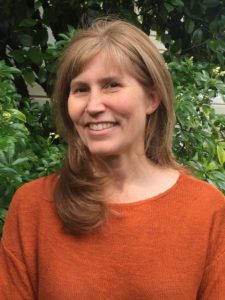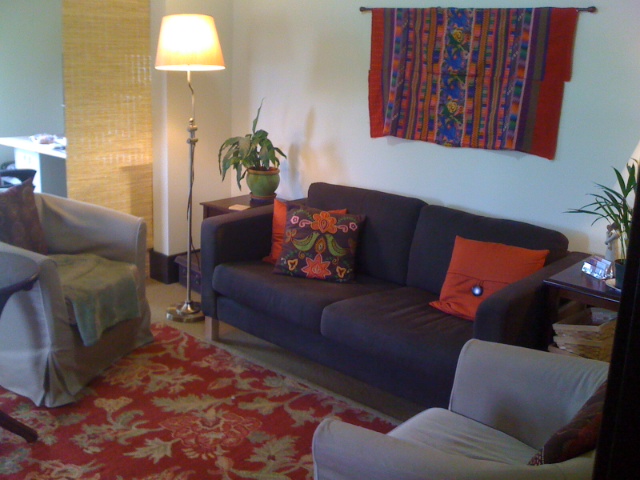Credentials
I hold a Masters degree in Clinical Psychology and have been practicing since 2001. I have graduate and postgraduate training in child and family therapy, couples therapy, and the treatment of trauma. I have spent most of my career as a therapist in private practice, but have had windows into many different facets of life through diverse experiences prior to completing my degree.
I found my way to this work inspired by the strength and resiliency of communities impacted by the civil war in Guatemala. I learned through those early experiences that even when people have experienced unimaginable hardship and profound heartbreak it is possible to heal and work for a better world. Later I was touched by the inner strength, wisdom, and heart-felt generosity of migrant workers harvesting the crops outside Portland. In my many years working in early childhood programs and the public schools I learned a lot about what it takes for children to thrive. At Doernbecker Children’s Hospital I watched parents find the grace and steadfast strength to endure their children’s cancer treatment, and children who in spite of their illness filled the room with their laughter. I have a passion for system change, and led the development of the first domestic violence program for Latina women in Multnomah County in 1992.
I am licensed by the Oregon Board of Licensed Professional Counselors. To maintain my license, I fulfill an annual requirement for continuing education. This helps me satisfy my hunger for life-long learning and also keeps me up-to-date on new developments in psychotherapy.
Guiding Vision and Principles
Connection: Human beings are wired to connect. We need connection like water. Healing and growth are possible within a trusting and safe relationship. Counseling offers a safe connection.
Optimistic: Healing and growth are possible. No matter how great our suffering there is a path through.
Non-judgmental: We are all doing the best we can. When we look at our histories, our circumstances, and our unique needs we can start to make sense of feelings and behaviors that didn’t initially make sense.
Joy: People heal because it feels good. We want to feel joyful, alive, curious, at ease, playful, in balance, grounded, real. We can use these feelings as guides to help us know if we are on the right track. Many people worry that in coming to therapy they will have to talk about things that are simply too hard to talk about. There are times when processing hard things can be useful. However, the first step in healing is to find relief, to stabilize, and to sooth the heart and nervous system. Together in therapy we can discover strategies and resources that will help you to feel more yourself again and feel relief from pain, frustration, or chronic numbness. The journey to healing should feel calming and integrating, not frightening or overwhelming. Therapy helps you to reconnect to joy.
Integration: We experience health when our bodies, emotions, minds and spirits are integrated. I draw from modalities which support this integration.
Mindfulness: When we slow down and bring mindful awareness to our daily life we can start to break out of old habits and make decisions from a wise and grounded place.
Social Justice: Injustice leaves a traumatic wound. I am passionate about supporting people who are marginalized in overcoming barriers, connecting to resources, and reconnecting to inner strength and vibrant health. I am aware of the ways that injustice penetrates the human spirit and disorients us. I blend together ideas from empowerment-based trauma recovery with liberation pedagogy. Liberation pedagogy is rooted in the historical marginalization and life experiences of working class and poor people. It enables people to perceive and analyze political contradictions, affirms cultural wisdom, and builds capacity to break out of silence and to engage in transforming society.
Human: I come to this work as an equal. I have many years of advanced training and professional development, but one of my greatest teachers has been life itself. I know suffering and healing from the inside out. Life has sufficiently humbled me to know that there’s a lot I don’t know. We are all learning, growing, seeking and doing the best we can.
Inner Compass: We all have an inner compass inside which helps us to know if we are on the right track. There is a voice inside that says “yes” or “no,” that knows what is right for us.
Theories and Models which Influence my Work
- Attachment Theory
- Sensorimotor Psychotherapy: a somatic approach to trauma recovery
- Emotional Focused Therapy: an attachment based couples therapy
- Sensory Motor Arousal and Regulation Treatment: an approach which integrates ideas from occupational therapy with psychotherapy to support self-regulation and trauma recovery
- Solution-focused Cognitive Behavioral therapy
- Attachment, Regulation, and Competency Treatment
- Gestalt Play Therapy
- Collaborative Problem-Solving
- Jungian Theory
- Process-oriented Psychology
- Humanistic Theories
- Liberation Pedagogy
- The Thai Forest Tradition of Theravada Buddhism



